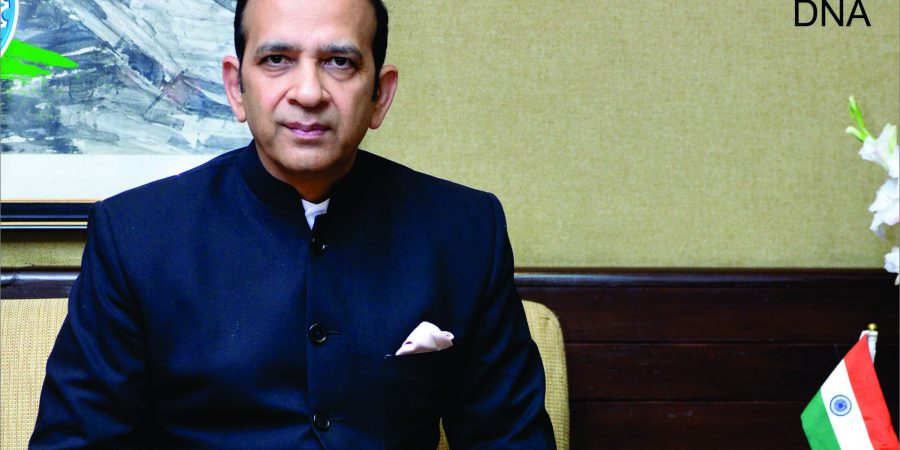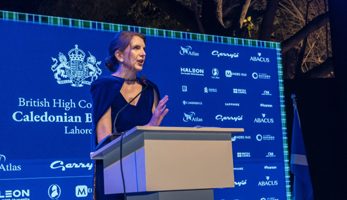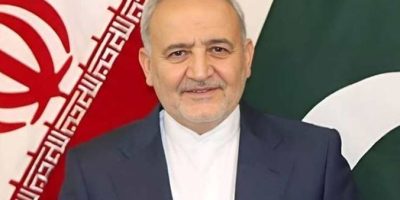A future of peace and promise: AJAY BISARIA

INDIAN HIGH COMMISSIONER AJAY BISARIA ISSUED SPECIAL MESSAGE FOR CENTRELINE MAGAZINE ON THE EVE OF THE 70 REPUBLIC DAY OF INDIA
On the occasion of the 70th Republic Day of India, I extend my warm greetings to readers of CENTRELINE. Occupying a unique niche, CENTRELINE is Pakistan’s largest circulated news and diplomatic magazine. It is indeed a pleasure to reach out to its readers in an issue devoted to India’s story.
The Republic Day, celebrated on 26 January every year, holds great significance for every Indian. This is a day to remember with gratitude the sacrifices of millions of freedom fighters whose blood and sweat gave us independence. On this day in 1950, India became a Republic and, consequently, the largest democracy in the world.
Consider this: with a 1.3 billion population today, close to a billion people will vote in the upcoming general elections in May 2019. India has 1841 registered political parties, 82,900 registered newspapers, 882 TV channels, and 1600 languages and dialects. The growth of democracy in India has shown to the world that humanity can be governed with freedom. That it is possible to achieve inclusive economic growth, without sacrificing democracy and diversity, without compromising on the values of pluralism and tolerance, which are the core values of our society. And today, we celebrate the Constitution bequeathed to us by our founding fathers, that accommodates and celebrates these values.
Our Constitution framers were men and women with enormous foresight. They understood the majesty of the rule of law and rule by law. The great framers of the Indian Constitution saw it not just as a basic law of the new nation but as a tool for social and economic transformation of the multi-ethnic, multi-racial, multi-lingual and multi-religious society that is India. They considered this document as an instrument of nation-building that would ensure justice, liberty, equality and fraternity across our diverse country. Seven decades later today, India not only continues to be a thriving democracy, but is also the fastest growing major economy of the world.
Today, India has emerged as a land of immense opportunity. Over the last two decades, the country introduced radical economic reforms to create an investor-friendly environment. India’s economic engagement with the external world is intense. The FDI inflow between 2000 and 2018 now stands at US$ 555 billion. Many major flagship initiatives have been launched over the years, including Make in India, Digital India, Skilled India Mission, Swatchh Bharat, Smart Cities, amongst others, offering enormous opportunities to foreign investors. These reforms resulted in India recording a jump of 65 positions in the last four years in the ease of doing business ranking, with a rank of 77 among 190 countries as assessed by the World Bank. India is the third largest startup nation in the world, with an average of at least 5 startups being founded every day. The genius of its people has transformed India and this year it is slated to become the world’s fifth largest economy at US$ 2.6 trillion, whilst having a GDP growth rate of 7.6%.
India follows a Neighbourhood First policy to engage for mutual benefit with its neighbours and thus India’s relationship with Pakistan is of key importance. It is unique and uniquely challenging. Both countries share deep historical, cultural, linguistic, religious and ethnic bonds. They face similar economic challenges. Despite multiple roadblocks, humanitarian and trade exchanges between the two countries continue. India remains a popular destination for medical tourists from Pakistan. Thousands of members of divided families visit each other. Thousands visit both countries for pilgrimages and business. According, to a recent World Bank report, the trade potential between the two countries stands at US$ 37 billion per annum. Considering that the present trade between the two countries stands at around US$ 2 billion there is room for a leap forward once barriers are broken, in an atmosphere free of distrust and violence. In the long run, only sustained peace and shared progress will allow India and Pakistan to focus better on their domestic objectives of prosperity for their peoples. Our common enemies remain poverty, illiteracy and disease and not each other.
Humanitarian initiatives occupy an important place in building trust between the two countries. The Kartarpur Corridor is one such initiative. To commemorate the 550th Birth Anniversary of Guru Nanak Dev ji in 2019, and respecting the sentiments of the Sikh community, the two countries have agreed to build a ‘corridor of faith’, with modern facilities in both countries for smooth visits of pilgrims from India to the holy shrine at Kartarpur Sahib.
The highest stage of India’s nation building project is to contribute to a better world through the ideal of Vasudhaiva Kutumbakam – of the World being One Family. I am certain that this vision will also drive the relationship between India and Pakistan.
On the occasion of India’s 70th Republic Day, I wish our two countries a future of peace and promise.
Ajay Bisaria
High Commissioner of India in Pakistan
***
Related News

British High Commission celebrates Scottish-Pakistani ties at ‘Caledonian Ball’ in Lahore
ISLAMABAD, FEB 5 /DNA/: Held at the historic Sir Ganga Ram Residence, Wednesday’s Caledonian BallRead More

Iranian envoy meets CM Punjab
DNA LAHORE, FEB 4: President Pakistan Muslim League-N Muhammad Nawaz Sharif along with Chief MinisterRead More


Comments are Closed